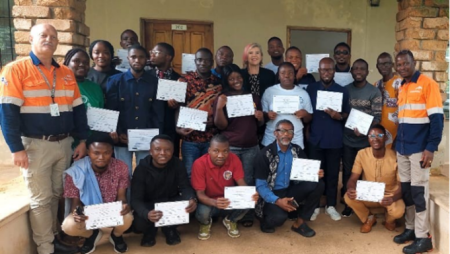The Manufacturers Association of Nigeria (MAN) has vehemently opposed the impending ban on single-use plastics (SUPs) in Lagos State, slated for July 1, 2025. MAN contends that the ban will cripple the livelihoods of a vast majority of individuals involved in the plastic value chain, potentially leading to widespread job losses and economic hardship. Their argument centers on the lack of viable alternatives, insufficient stakeholder consultation, and the absence of a comprehensive plan to mitigate the ban’s adverse effects. MAN insists that the ban targets the symptom, plastic waste mismanagement, rather than addressing the root cause and advocating for a more sustainable and inclusive approach that prioritizes job creation and a circular economy.
MAN’s primary concern revolves around the economic fallout of the ban. A study commissioned by the association reveals that over 89% of operators in the plastic value chain rely solely on SUPs for their income, with no alternative means of livelihood. This translates to thousands of individuals, particularly women-led micro-businesses, facing imminent unemployment. Furthermore, manufacturers anticipate significant workforce restructuring due to anticipated production cuts. The sudden disruption in the market will not only affect producers but also retailers, wholesalers, and recyclers who depend on the availability of plastic materials. MAN argues that the lack of affordable and readily available alternatives will compromise product integrity and inflate consumer prices, exacerbating the economic burden on the general public.
Beyond the immediate economic ramifications, MAN criticizes the policy’s lack of comprehensive planning and stakeholder engagement. They argue that the government’s decision to ban SUPs was not based on robust data and lacked meaningful consultation with those most affected. The abrupt nature of the ban, according to MAN, leaves businesses with little time to adapt and transition to alternative materials or practices. The absence of a clear roadmap for implementation further compounds the problem. MAN points to the fact that only a small fraction of businesses have received information or support about the ban, highlighting the government’s failure to adequately prepare stakeholders for the impending changes.
Instead of an outright ban, MAN proposes a more holistic and sustainable approach to plastic waste management. The association recommends focusing on strengthening the existing Extended Producer Responsibility (EPR) program, which encourages manufacturers to take responsibility for the end-of-life management of their products. They cite the Food and Beverage Recycling Alliance, with over 40 MAN member companies already participating, as a successful example of industry-led recycling initiatives. MAN argues that investing in waste management infrastructure, such as material recovery facilities and localized recycling plants, is a more effective long-term solution than simply banning plastic products. This would not only address the environmental concerns related to plastic waste but also create new opportunities within the recycling sector.
MAN emphasizes the importance of aligning environmental goals with economic realities. They argue that a blanket ban on SUPs without considering the socioeconomic implications is counterproductive and unsustainable. They highlight the need for a balanced approach that prioritizes job creation, a circular economy, and environmental protection. Drawing parallels with the International Labour Organisation’s Decent Work Agenda, MAN stresses the need for social dialogue, social protection, rights at work, and employment considerations to be central to any policy implementation, particularly those that impact livelihoods. They urge the Lagos State Government to prioritize local realities and tailor environmental reforms to suit the Nigerian context rather than adopting a one-size-fits-all approach.
In contrast to MAN’s assertions, the Lagos State Government maintains that they have engaged in dialogue with stakeholders. The Special Adviser to the Governor on Climate Change and Circular Economy argued that the one-year moratorium before the ban’s full enforcement provided ample time for discussions and adjustments. The government points to meetings with MAN and the Food and Beverage Recycling Alliance as evidence of their commitment to stakeholder engagement. However, MAN maintains that these dialogues were insufficient and failed to address their fundamental concerns about the ban’s impact on livelihoods and the lack of viable alternatives. This disagreement underscores the need for further, more substantial engagement between the government and industry stakeholders to find a mutually acceptable solution that balances environmental protection with economic sustainability.













